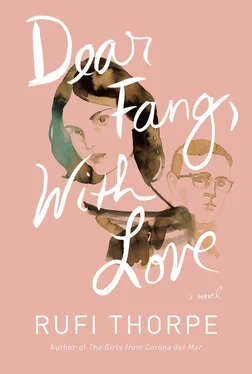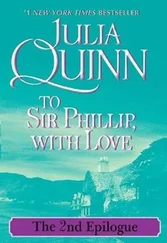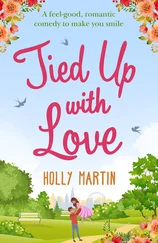“All right,” he said, shrugging. “I’m sorry all the same. Can we be friends?”
“Of course,” I said, because there was no other option. If I told him no, he would have the impression this had been upsetting for me, and I would lose even more power.
“Good,” he said. “Are you safe getting home?”
He wasn’t even going to walk me home, I realized. I mean, I hadn’t expected him to, it actually hadn’t occurred to me that he would. But now he wanted verbal acknowledgment that he didn’t need to, when he knew perfectly well that I was seventeen and wandering around in a foreign city at what was now midnight. “Of course,” I said. “I’m perfectly safe.”
I didn’t even know how to get home because his apartment was in Užupis and I got totally confused. I wandered around for fucking forever. At one point I saw a bar and there were lots of young Russian guys in it and I thought about going in there and fucking one of them, but I was feeling too scared and upset about how lost I was. Finally, I found myself on Žydų gatvė, but I only knew it because I saw the kindergarten where the Great Synagogue used to be.
I sat down in the grass in the middle of the playground. It was a little muddy from the rain earlier, and I knew my shorts were getting wet, but I didn’t care. I just sat there and let my mind unclench, and it felt like knowledge was being poured into me. It was just this feeling of transmission, of images or facts, flickering by so fast I didn’t know what they were. I felt that God was there with me on that playground. The universe was being explained. I plucked at a lock of my hair that had gotten stuck in my mouth as I was walking. The moon was small and high above me. I wish I could describe it without using language. If anything, what I was receiving were images, thousands upon thousands of images, flickering through me, and each one was a code for some tremendous truth.
Daniel didn’t matter. Judith didn’t matter. My father didn’t matter. Fang didn’t matter.
Your mother birthed you through her hips, a voice said in my mind. I pictured myself sliding out of Mama, and her sliding out of her mama, and her sliding out of her mama, all the way back. We were like matryoshka nesting dolls. We were thousands of years old.
It was funny, I thought, the way women let men think they ruled the world. That was the bargain they made: You take the world, and we’ll take life and death. Sure, fight wars. Make up countries. Call them whatever you want. Make up laws. It all sounds good.
But that was only to distract them so that they wouldn’t try to participate in the women’s work, which was the pulling of souls out from the darkness and the projection of light into the future. Women were making time, they were weaving it in their wombs by building consciousnesses to experience it. Let the men have their tanks. Let them have their statues. Let Putin ride his horse shirtless.
We would be here all along, quietly guiding the light out of the dark.
IT TOOK SEVERAL CUPS OF COFFEE and four Tylenol before I could even be convinced to shower and get ready for our trip to the castle at Trakai. It was a long bus ride out to the castle and Judith was there, but both Susan and Daniel were conspicuously absent. Vera was humming with energy. She was chattering about the forest and what a magical place it seemed like. Primordial was the word she used. It was true; the country cottages, dachas, were like something from a fairy tale, and as we passed open meadows there would often be a fat old woman wearing a head scarf stooping to pick mushrooms or flowers. I was close enough to Vera that I noticed her teeth were yellow and visibly coated in plaque.
“Jesus, Vera! When was the last time you brushed your teeth?” I said. The rest of her was perfectly coiffed, her makeup precision perfect. It was unsettling.
“God,” she said, elbowing me. “Nosy!”
“Seriously,” I said. “Buy some gum or something just to get the top layer off.”
The castle was not nearly as impressive as a castle ought to be. The grounds were beautiful, though, a large lake with swans. An inordinate number of weddings seemed to be taking place. Brides were posing for photos everywhere you looked. Darius took us around the castle, pointing out what was of interest, explaining that this was wedding season and that many couples had been waiting for summer so that they could get married at Trakai. The castle itself was stone to about the first story and then brick going all the way up after that. It made the building look like one of those flip-books where you can put the legs of an elephant on the body of a deer.
“The castle needed renovations,” Darius explained, “and of course the Soviets would never have allowed us to build a fortress, a castle, thinking it would be part of a rebellion. Well! So the Lithuanian officials came up with a scheme to rebuild the castle anyway, and they told the Soviets they needed building materials to build new schools and then they used the bricks that were sent to rebuild the castle. Too bad for the schoolchildren, but oh well!”
Vera was in such high spirits that she kept turning cartwheels as we wandered along the green lawn. I noticed that Kenneth was watching her, sneering, as though her cartwheels were a direct rebuke or rejection of him. After Darius released us to explore, I just wanted to get away from the group. I wasn’t interested in the castle. I was getting bored of history, to be honest. “Let’s go get some coffee or something,” I said, and steered us to a small café on the lake.
We ordered coffee and fried dough. Dragonflies buzzed along the edge of the water and something about the expansiveness of the space or the properties of the lake muted all sound. Even though there were many other people around, we could only hear their conversations or laughter as a hush. I thought about Herkus. I was going to have to tell Vera about what had really happened to Grandma Sylvia. I had decided that much already.
“Vera,” I asked, “did you write a paper about rape for English class?”
She closed her eyes for a long slow blink, then opened them, said, “I had forgotten I did. It feels like that was so long ago. It was in another life.”
“Well. At the time, you were upset about it. And your mother told me about it.”
“God, Mama, way to be a busybody,” she said.
“And she asked me not to tell you something, a thing that I think is important, and that I feel like you have a right to know because it’s part of your lineage.” I was the only one eating the fried dough, and I tried to lick the powdered sugar off my fingers before telling her the story, the real story, of how Grandma Sylvia escaped.
Vera listened with a stagy but quiet stoicism. Her manner was affected in a way that reminded me of my mother, as though she were playacting hearing the story.
“This doesn’t surprise me,” she said, when I was done. “How else is a woman supposed to escape with her life?”
I thought this was an odd reaction.
“I mean, really,” Vera said. “The story before didn’t make any sense. He just set her free because she was pretty? Like freeing a butterfly out of doors that has accidentally gotten in your house? It didn’t add up.”
I nodded. It was true that the edited story I had told her was psychologically problematic, presenting the SS officer as some motive-less do-gooder, but I thought the issue of combining rape and freedom was just as hard to fathom.
“Oh, I don’t think so at all!” Vera said. “Rape is really like the perfect act to encapsulate what he wanted to say to her: Fuck you for being so beautiful and forcing me to want you. Fuck you for not being something I can just kill. Fuck you for making me look, for making me see. ”
Читать дальше












